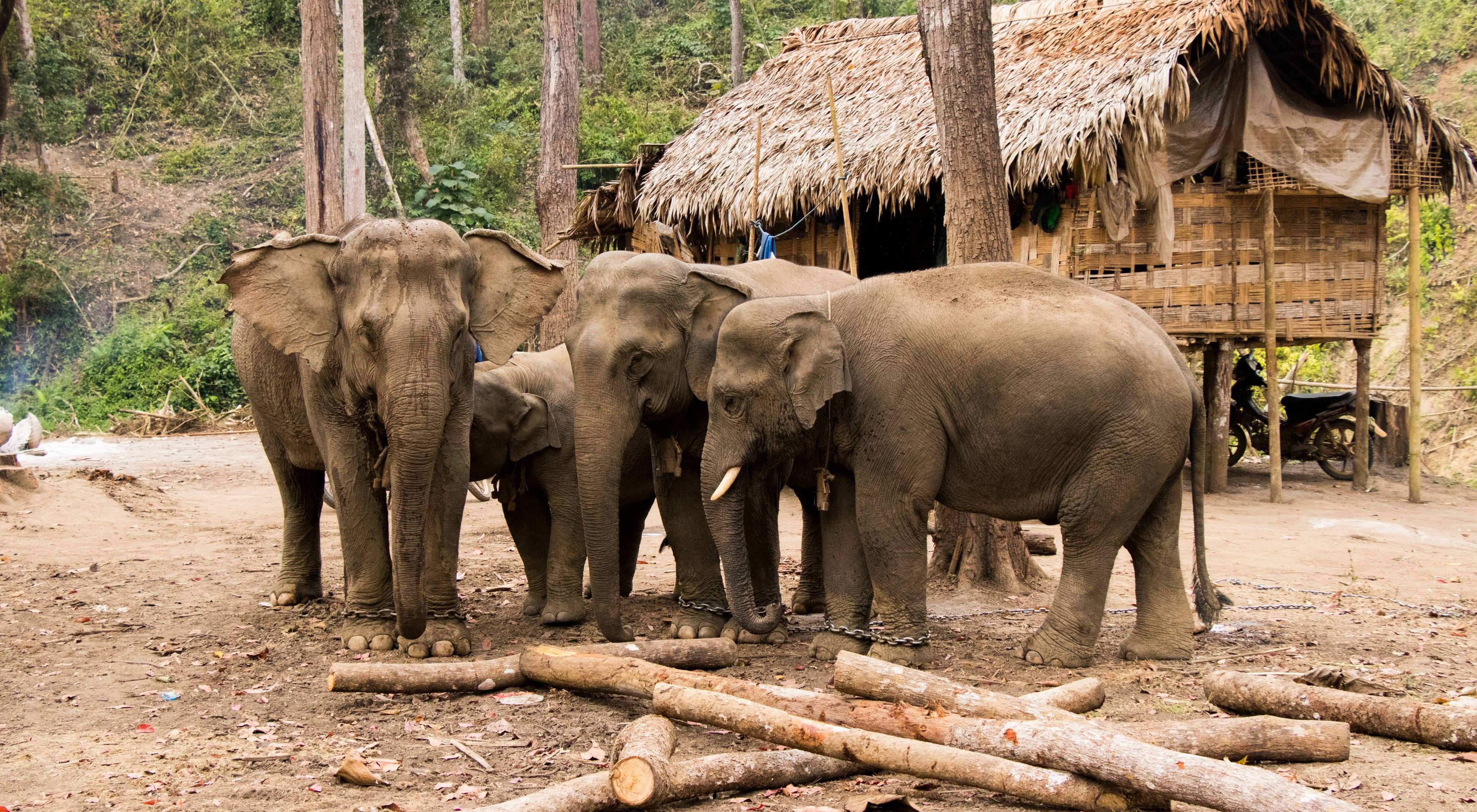Saving Myanmar’s Timber Elephants
For centuries, timber elephants have been a treasured part of Myanmar’s cultural fabric.
Please visit the Myanmar home page for an update on the work happening in the region.
Sixty percent of the world’s wildlife was lost in the last 45 years, which is why The Nature Conservancy is dedicated to protecting lands so wildlife populations have room to thrive. In Myanmar, we are taking a collaborative approach to conserving timber elephants.
Though these animals face tremendous challenges to their long-term survival, we believe their legacy can be preserved through strategic anti-trafficking and forest conservation efforts.
TNC is well-positioned to collaborate on this new and unique program. Myanmar is home to an estimated 5,000 domesticated timber elephants that are symbols of national pride and the world’s best example of reduced-impact logging.
Although these elephants have long received meticulous care, they have been deeply affected by a recent government moratorium on logging exports, one imposed after decades of corruption and mismanagement. Many experts consider this a necessary step to salvage Myanmar’s exploited forests. But the moratorium has had an unintended and grave consequence.
The only way for these iconic creatures to survive is for people like you to intervene, take action, and get others to act, too.
Many timber elephants are now out of work and lack basic food, water, medical care and protection. Without strategic intervention, we believe a significant percentage will be killed for their ivory or sold into the tourism industry, where young elephants are subjected to well-documented, relentless abuse. We will work to:
- Protect 5,000 timber elephants from poachers through an innovative tracking system.
- Collaborate with partner groups to expose a) the illegal trade in ivory and elephant hide and b) illegal trafficking from Myanmar to Thailand as a result of the elephant tourism trade.
- Support government efforts to create a care facility for orphaned, sick and elderly elephants.
In addition, Myanmar’s elephants—both domesticated and wild—cannot be successfully protected without facing the big-picture challenges of deforestation and poor forest management. TNC is working with the government to conserve and restore critically important habitats, using our science to identify areas that will best safeguard threatened wildlife as well as working elephants.
Read More
-

Saving Cultural Icons
Without strategic intervention, Myanmar's working elephants are facing habitat loss, death for their ivory, or being sold into tourism industry slavery. Read more.
